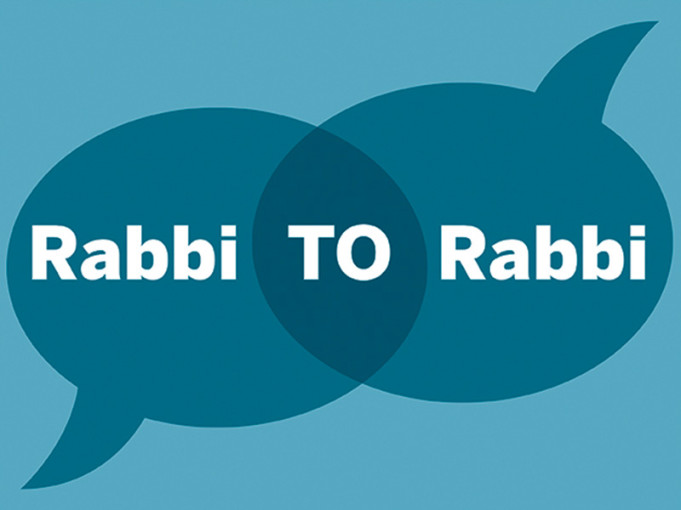There’s a school of thought that Jews can be categorized into two groups – those who are empathetic with the oppressed, and those who see danger around every corner
Rabbi YAEL SPLANSKY
holy Blossom Temple, toronto
Rabbi MARK FISHMAN
Congregation Beth Tikvah, MONTREAL
Rabbi Fishman: Purim is around the corner (no, I’m still not sure what I’m dressing up as) and Pesach follows soon after. It’s as if the two holidays go together. The Israeli writer and thinker Yossi Klein Halevi posits that there are two typologies of Jews, which are based around Purim and Pesach. There is the Pesach Jew, who is, according to Halevi, someone with the moral imperative to be “empathetic with the oppressed,” based on the fact that we were slaves in Egypt. And there is the Purim Jew, who remembers that Amalek attacked us as we emerged from Egypt and uses that as the moral basis for being “alert to threats … and not be naive.”
Rabbi Splansky: I admit that I am, by nature, a Pesach Jew and, by schooling, a Purim Jew. Pesach asks: what potential lies before us? Purim asks: what threat crouches behind us?
Pesach Jews remember slavery, in order to recognize and realize freedom; Purim Jews are never free, just momentarily lucky to live in the palace. Pesach Jews carve out the path to destiny with courage and compassion; Purim Jews respond to looming fate with bravery and spite. Pesach Jews drink four cups of wine to dream audaciously of freedom; Purim Jews drink and drink to numb the pain of victimhood.
Rabbi Fishman: This is a contrast that is not easily dismissed. I have come to know people who deeply associate with one or the other of these types. For some, the threat of a nuclear Iran, rising anti-Semitism in Canada or how anti-Israel bias is accepted on university campuses is their critical raison d’etre. They find themselves attending rallies, writing letters, feeling that unless the Jewish community sticks up for itself, no one else will.
At the same time, I have met other people – who are no less passionate and no less committed – who feel that the plight of the stranger, the immigrant and the marginalized within society is the ultimate expression of their Jewish idealism. As the Talmud would say, “both these and those are the words of the living God,” meaning that there is certainly truth to each of these expressions and that there is room for both approaches. The question is: how do we organize our priorities?
Rabbi Splansky: While both festive days are needed to make our sacred calendar complete, Jewish tradition clarifies which takes precedence. Pesach is rooted in Torah; Purim in a “God-less” megillah. Pesach is celebrated for a week, bookended by holy days; Purim is just one day (and a working day at that). Pesach is lauded with glorious songs of Hallel; Purim is not. The Pesach themes of redemption and freedom are prominently featured in every daily service throughout the year; the Purim theme of fearful enemies is reluctantly included in our silent Amidah. The hierarchy of these days is clear.
Why does our tradition favour Pesach over Purim? Because Purim is merely about survival, while Pesach puts us beyond survival. Purim is a celebration of “freedom from.” Pesach is the celebration of “freedom to,” or “freedom for.”
Rabbi Fishman: Of course, no Jewish calendar can be complete without both celebrations. We need Purim and we need Pesach. We have to be cautious, without being defensive. We need to be alert, without becoming overly suspicious. And we need to sensible about how we look at our security and standing within society – we cannot be naive.
And yet, clearly this is not the fullest expression of a vibrant holistic Jewish life. We also have to be able to see the trace of God in the face of the stranger. We need to be able to care for and respect those who are not like us. It seems that after first securing our safety, we must, as a people, expand beyond our horizons to truly be a driving force for good in this world.
Rabbi Splansky: We delight in the stories of our people – the very real stories of Jewish history, woven together with our fanciful folktales like Esther. Encoded in these stories are the secrets of our survival. In them, we find clarity in what is right, and the creative courage to secure freedom for our people and for all peoples.
